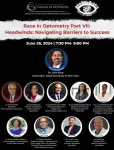(Press-News.org) Since the peak of the AIDS epidemic, the U.S. has achieved significant advancements in preventing and treating HIV, though progress has been uneven across regions and slower than necessary. In Missouri, where the number of new HIV diagnoses and deaths has not improved since 2017, there is a need to recapture momentum in addressing the disease.
In a bid to jump-start the stalled campaign against HIV in the region, researchers at Washington University School of Medicine in St. Louis and Saint Louis University plan to establish the Midwest Developmental Center for AIDS Research with funding from the National Institutes of Health (NIH). The center, slated to open in September, will aim to create a platform for researchers and public health workers to collaborate and coordinate their efforts to fight the HIV epidemic together.
“There’s a public perception that we’re on the other side of the HIV epidemic,” said Elvin Geng, MD, a Washington University professor of medicine who will direct the new center. “St. Louis continues to have a significant HIV epidemic. One problem we face here in St. Louis is that the scientific and public health communities are strong but siloed. The goal of this center is to break down those siloes so we can all work together more effectively to end the HIV epidemic in the region.”
Every year, about 500 people are newly diagnosed with HIV in Missouri, and nearly 200 die of disease related to HIV infection. Thirteen of the U.S. counties identified by the Centers for Disease Control and Prevention to be at highest risk of an HIV outbreak are in Missouri. Most people in the state get diagnosed late in the disease process, after their immune cells have begun to die off. This pattern of late diagnosis suggests that the official numbers probably underestimate the true infection rate in the state. Worse, it means that many people who could benefit from HIV treatment are not receiving it, which threatens their health and hinders efforts to limit the spread of the virus.
The NIH established the Centers for AIDS Research (CFAR) program in 1988 to promote high-quality research to combat the AIDS epidemic, which was then raging out of control. Over the years, 19 CFARs have been established throughout the country. The new center in St. Louis is a developmental CFAR, meaning it is in a five-year initiation phase.
“This center is built on collaboration between our regional universities,” said Enbal Shacham, PhD, a professor of behavioral science and health equity at Saint Louis University and the associate director of the center. “It will focus our efforts to grow research on HIV prevention, care and treatment to our St. Louis region together. I am thrilled to lead the Saint Louis University partnership particularly because of the opportunities this creates for our communities in improving HIV-related health equity and outcomes.”
The mission of the CFAR program is to provide a framework to bring the people who conduct the research into conversation with the people who are fighting the epidemic on the ground. To that end, Geng and center co-director Juliet Iwelunmor, PhD, a professor of medicine at Washington University, have pulled together a stakeholder advisory committee including representatives from the city and state health departments, as well as from Fast-Track Cities St. Louis, the local branch of an international campaign to end the HIV/AIDS epidemic by 2030, and the Metro St. Louis HIV Health Services Planning Council. The center will institute a variety of programs to enhance collaboration including:
Show Me the Response, an annual regional symposium that will give scientists and public health practitioners the opportunity to meet in person and share data and insights.
Partner Pilot Awards, which will go to research teams co-led by investigators from traditional research universities and nonresearch organizations.
Internship opportunities at the city’s Department of Health for students from Harris-Stowe State University, a historically Black university.
“The Midwest Center for AIDS Research will help diversify the approach to, and the leaders engaged in, efforts to mitigate the AIDS epidemic,” said Harvey R. Fields Jr., PhD, dean of the College of STEM at Harris-Stowe. “The inclusion of Harris-Stowe State University leverages institutional strengths, enhances institutional capability and provides Harris-Stowe’s developing health-care scholars with opportunity to make meaningful contributions to their own communities even as undergraduates.”
In addition, the center will participate in the STAR (Stimulating Training and Access to HIV Research Experiences) program, an innovative, multicenter, yearlong educational program that aims to develop the next generation of HIV research leaders by training undergraduate and graduate students in problem-based and bottom-up strategies for HIV-prevention research using community assets and resources to enhance efforts to end the HIV epidemic.
The center will be based in St. Louis and initially will focus on building relationships within the city and county. Over the longer term, the center will expand into outlying counties to address the state’s significant rural epidemic as well. Dima Dandachi, MD, the medical director for the Columbia/Boone County Public Health and Human Services Department in central Missouri and the medical director of the HIV/AIDS treatment and prevention program at University of Missouri Health Care, sits on the center’s scientific working group to help guide research priorities.
The center aims to support HIV research at all levels, from laboratory experiments to community program pilots. To ensure that research funded by the center will answer the questions most critical to public health efforts and to people living with HIV, projects will be selected by a committee composed of people from academic and nonacademic organizations.
“Ending the HIV epidemic in the Midwest region demands that we, the public health communities, scientific communities as well as everyday citizens and persons living with HIV, all work together as partners and leaders,” Iwelunmor said.
END
Midwest Center for AIDS Research to help end regional HIV epidemic
St. Louis-based center unites scientists, public health experts, nonprofits to fight virus
2024-06-27
ELSE PRESS RELEASES FROM THIS DATE:
WIC enrollment reduces poor pregnancy outcomes for parents and babies, study finds
2024-06-27
More than one in 10 households in the United States last year did not have access to adequate and nutritious food, according to the U.S. government. Further, food and nutrition insecurity lead to a higher risk of poor pregnancy outcomes.
The U.S. Special Supplemental Nutrition Program for Women, Infants and Children (WIC) is one of the main federal food assistance programs that aims to reduce food insecurity for eligible pregnant, postpartum and breastfeeding people and their children. WIC helps improve the health of participants and their families by providing access to food, nutrition education, and referrals ...
Northwestern researchers propose a new, holistic way to teach synthetic biology
2024-06-27
The field of synthetic biology, the science of manipulating biology, has a lot of “cooks in the kitchen,” which has both helped it flourish and made it unusually difficult to create a cohesive, consistent curriculum for students at every level of study. Each discipline involved — from chemical engineering to ethics — has a unique approach to teaching and literature, which creates inconsistencies between what scientists learn.
Now, Northwestern University researchers propose a new way to teach synthetic biology that uses different levels of organization — starting at the molecular scale and growing ...
Is ChatGPT the key to stopping deepfakes? Study asks LLMs to spot AI-generated images
2024-06-27
BUFFALO, N.Y. — When most people think of artificial intelligence, they’re probably thinking of — and worrying about — ChatGPT and deepfakes. AI-generated text and images dominate our social media feeds and the other websites we visit, sometimes without us knowing it, and are often used to spread unreliable and misleading information.
But what if text-generating models like ChatGPT could actually spot deepfake images?
A University at Buffalo-led research team has applied large language models (LLMs), including OpenAI’s ChatGPT and Google’s Gemini, toward spotting deepfakes of ...
NIH funds critical center in Detroit to lead efforts to investigate and mitigate health impacts of community-voiced chemical and non-chemical stressors
2024-06-27
DETROIT — Wayne State University received a four-year, $5.2 million P30 environmental health sciences core center (EHSCC) grant from the National Institute of Environmental Health Sciences (NIEHS) of the National Institutes of Health (NIH) in support of the “Center for Urban Responses to Environmental Stressors (CURES).”
This grant will allow the interdisciplinary CURES team of researchers, educators and community partners to continue its ongoing quest to understand the basis for urban environmental health disparities and the human health impact of environmental exposure to complex chemical and non-chemical stressors in Detroit's urban landscape. CURES is one of ...
TREC director Jennifer Dill named editor-in-chief of Transportation Research Record
2024-06-27
Jennifer Dill, director of Portland State University's Transportation Research and Education Center (TREC), has been named the inaugural editor-in-chief of the Transportation Research Record (TRR). The TRR—the flagship journal of the National Academies of Sciences, Engineering, and Medicine’s Transportation Research Board (TRB)—is one of the most cited and prolific transportation journals in the world, offering wide coverage of transportation-related topics.
While maintaining her current role as the director of TREC, Dill will begin her duties ...
SUNY College of Optometry focuses on diversity and inclusion in optometry
2024-06-27
New York, NY— This week, the State University of New York (SUNY) College of Optometry held a continuation of their annual webinar series, Race in Optometry which started in 2020. Aimed at fostering a national dialogue that leads to necessary changes to increase diversity in the optometric profession and education, the annual webinar focused on Headwinds: Navigating Barriers to Success. This webinar was the seventh installment in a series hosted annually around the Juneteenth holiday by the College’s Office of Continuing Professional ...
Taxing shared micromobility: How cities are responding to emerging modes, and what's next
2024-06-27
Shared micromobility (including shared electric scooters and bikes provided by private companies) is one of the newest transportation options that has come to cities in the last several decades. A new report explores the different ways cities charge shared micromobility companies to operate, and how these funds are used.
In the newly released report, John MacArthur of Portland State University, Kevin Fang of Sonoma State University and Calvin Thigpen of Lime examine data from 120 cities in 16 countries around the world. They also conducted a survey of cities’ shared micromobility ...
June research news from the Ecological Society of America
2024-06-27
The Ecological Society of America (ESA) presents a roundup of four research articles recently published across its six esteemed journals. Widely recognized for fostering innovation and advancing ecological knowledge, ESA’s journals consistently feature illuminating and impactful studies. This compilation of papers explores the potential for pines to establish in pine-free interior Alaska, internet sleuthing to assess birds’ extinction risk and more, showcasing the Society’s commitment to promoting cutting-edge research that furthers our understanding ...
Antibody-drug conjugate highly effective in preventing recurrence in patients with early stage HER2+ breast cancer, trial finds
2024-06-27
A year of treatment with a medicine made of an antibody and chemotherapy drug has proven highly effective in preventing stage 1 HER2-positive breast cancer from recurring in patients, a team led by Dana-Farber Cancer Institute researchers has found.
In a clinical trial involving 512 patients with the earliest stage of breast cancer that tested positive for the HER2 protein, 97% of those treated with trastuzumab emtansine (T-DM1) after surgery were alive and free of invasive cancer five years after treatment. The results, published online today in the Journal of Clinical Oncology, suggest that T-DM1 is a reasonable treatment approach for this stage 1 population, the study authors ...
Ephemeral streams, often overlooked, are major contributors to US river flow and water quality
2024-06-27
Ephemeral streams – temporary streams that only flow after rainfall or snowmelt – contribute more than 50% of the flow in downstream river systems and likely have a major influence on water quality across the United States, according to a new modeling study. The findings show how important ephemeral streams are for the transport of water and pollution into larger, more permanent water bodies. Excluding these streams from coverage under the U.S. Clean Water Act, say the authors, would significantly limit federal authority to protect downstream water quality. Ephemeral streams, which flow only in direct response to precipitation and are disconnected from groundwater sources, ...
LAST 30 PRESS RELEASES:
Increasing the number of coronary interventions in patients with acute myocardial infarction does not appear to reduce death rates
Tackling uplift resistance in tall infrastructures sustainably
Novel wireless origami-inspired smart cushioning device for safer logistics
Hidden genetic mismatch, which triples the risk of a life-threatening immune attack after cord blood transplantation
Physical function is a crucial predictor of survival after heart failure
Striking genomic architecture discovered in embryonic reproductive cells before they start developing into sperm and eggs
Screening improves early detection of colorectal cancer
New data on spontaneous coronary artery dissection (SCAD) – a common cause of heart attacks in younger women
How root growth is stimulated by nitrate: Researchers decipher signalling chain
Scientists reveal our best- and worst-case scenarios for a warming Antarctica
Cleaner fish show intelligence typical of mammals
AABNet and partners launch landmark guide on the conservation of African livestock genetic resources and sustainable breeding strategies
Produce hydrogen and oxygen simultaneously from a single atom! Achieve carbon neutrality with an 'All-in-one' single-atom water electrolysis catalyst
Sleep loss linked to higher atrial fibrillation risk in working-age adults
Visible light-driven deracemization of α-aryl ketones synergistically catalyzed by thiophenols and chiral phosphoric acid
Most AI bots lack basic safety disclosures, study finds
How competitive gaming on discord fosters social connections
CU Anschutz School of Medicine receives best ranking in NIH funding in 20 years
Mayo Clinic opens patient information office in Cayman Islands
Phonon lasers unlock ultrabroadband acoustic frequency combs
Babies with an increased likelihood of autism may struggle to settle into deep, restorative sleep, according to a new study from the University of East Anglia.
National Reactor Innovation Center opens Molten Salt Thermophysical Examination Capability at INL
International Progressive MS Alliance awards €6.9 million to three studies researching therapies to address common symptoms of progressive MS
Can your soil’s color predict its health?
Biochar nanomaterials could transform medicine, energy, and climate solutions
Turning waste into power: scientists convert discarded phone batteries and industrial lignin into high-performance sodium battery materials
PhD student maps mysterious upper atmosphere of Uranus for the first time
Idaho National Laboratory to accelerate nuclear energy deployment with NVIDIA AI through the Genesis Mission
Blood test could help guide treatment decisions in germ cell tumors
New ‘scimitar-crested’ Spinosaurus species discovered in the central Sahara
[Press-News.org] Midwest Center for AIDS Research to help end regional HIV epidemicSt. Louis-based center unites scientists, public health experts, nonprofits to fight virus




